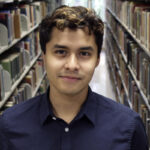
By Emma Farge
GENEVA (Reuters) – A series of public hearings with victims of alleged Israeli human rights violations opened at the United Nations in Geneva on Monday, with Israel dismissing them as “sham trials”.
The independent Commission of Inquiry, established by the U.N. top human rights body last year, plans five days of hearings which it says will be impartial and examine the allegations of both Israelis and Palestinian authorities.
However, Israel said the hearings were convened with little notice and pointed to an “anti-Israel” agenda.
“This (COI) and the convening of these sham trials shame and undermine the Human Rights Council,” it said in a statement issued by its diplomatic mission in Geneva.
A U.N. human rights office has previously dismissed allegations of bias and said Israel had not cooperated with the commission’s work.
The focus of the first set of hearings will be on the closure orders of a number of Palestinian organisations by Israel in August and the killing of the Palestinian-American reporter Shireen Abu Akleh in May.
The U.N. rights office has said its findings suggest that she was killed by Israeli forces while an Israeli investigation concluded she was likely to have been unintentionally shot by an Israeli soldier.
On the first day, three representatives from shuttered Palestinian non-governmental organisations will testify.
Neither the hearings nor the U.N. Human Rights Council have any legal powers. But investigations launched by the council are sometimes used as evidence before national or international courts.
Besides Israel, its ally the United States has criticised the U.N. Human Rights Council for what it has described as a “chronic bias” against Israel. It quit the body over this in 2018 and only fully rejoined this year.
The three-member COI was created after the 11-day conflict in May, 2021 during which 250 Gaza Palestinians and 13 people in Israel died. The inquiry mandate includes alleged human rights abuses before and after that and seeks to investigate the root causes of the tensions.
(Reporting by Emma Farge, editing by Ed Osmond)




